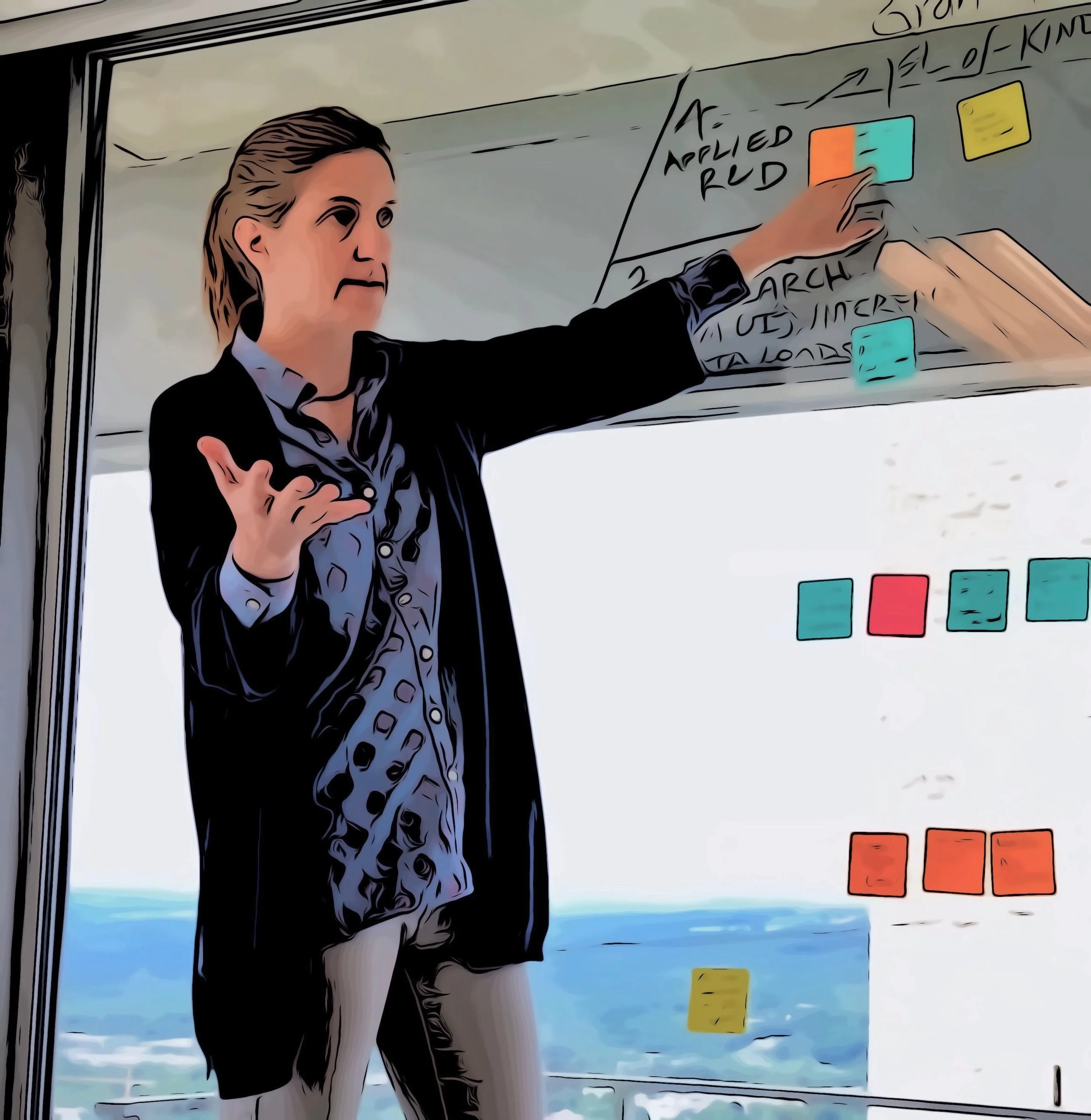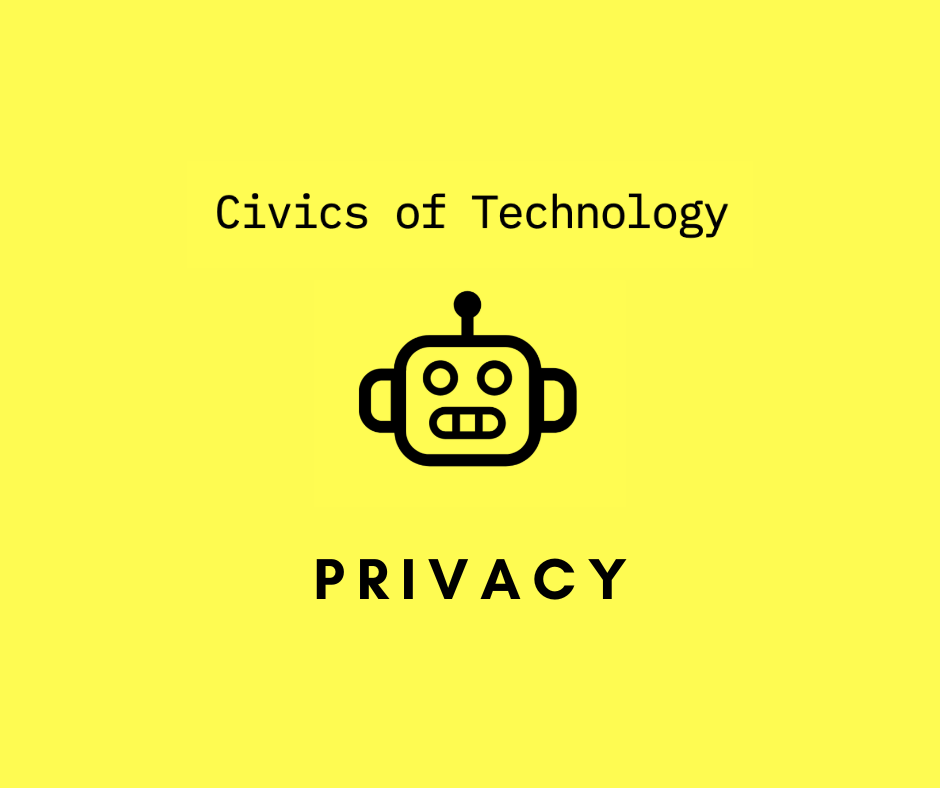Privacy
Privacy
Privacy Week Events
We hosted our first “Data Privacy Week” webinars during the 2026 Data Privacy Week. Webinars were held on January 22nd and 29th.
Please visit the following links to review webinar recordings and resources:
To submit questions for the guest speakers, please fill out this form.
If you have any questions, email Dr. Morgan Banville at mbanville@maritime.edu.
About Data Privacy Week
According to the National Cybersecurity Alliance, Data Privacy Week is an international effort to empower individuals and businesses to respect privacy, safeguard data, and enable trust. Each Data Privacy Week usually has a theme and occurs during the last week of January. The goal of Data Privacy Week is to spread awareness about online privacy. The Alliance’s goal is twofold: “we want to help citizens understand that they have the power to manage their data and we want to help organizations understand why it is important that they respect their users’ data.”
For more information, visit last year’s Data Privacy Page: Data Privacy Week - National Cybersecurity Alliance
About the Sessions
Sessions on January 22 and 29 will focus on aspects of data privacy: such content would be appropriate for students and faculty/staff alike.
On Day 1 (Jan 22), both speakers question: What does privacy mean in a human society where technologies and corporations are designed to extract, share, and monetize data without public understanding or will? Who benefits, who pays the price, and who decides? Led by two public higher education librarians who spend their days working towards making systems work for the common good, this two-part session will examine how design choices, power structures, and economic interests shape the development and adoption of software and systems. Together, these sessions will encourage reflection on whether commercialized, extractive platform-based technologies are capable of advancing the public good, and highlight the necessity of privacy, consent, and public will in system design and integration.
On Day 2 (Jan 29), both speakers explore privacy as a right. Privacy is, as the American Library Association, asserts, “the bedrock to intellectual freedom.” The right to read, research, and write in an environment free of surveillance is important to the process of creating new knowledge, and creative endeavors. Yet, protecting your digital privacy is no easy feat, especially as increasingly the systems we use to read, research, and write are digital mediated. Whether that is reading on a digital device, using digital databases or online search engines to find resources, or sharing your research and writing via social media--- navigating today’s information landscape requires a security mindset.
This digital privacy literacy workshop will focus on proactive and reactive strategies individuals and collectives can take to better protect privacy. We will provide some baseline information and knowledge to help participants understand how the internet works. We will provide strategies for identifying potential risks to privacy, security, and anonymity encountered day to day while conducting personal or academic tasks digitally. The workshop will also touch on topics such data brokerage, artificial intelligence, algorithms, and virtual private networks.
-
Morgan Banville
Moderator and Civics of Technology Board Member
Morgan C. Banville (she, her) is an Assistant Professor of Humanities at Massachusetts Maritime Academy. Her research and teaching are defined by the intersection of technical communication and surveillance studies, often informed by feminist methodologies. She examines how biometric technologies are implemented in diverse contexts, and her research was awarded the 2024 CCCC Outstanding Dissertation Award in Technical Communication, and the 2024 Best Research Article Award from the Council for Programs in Technical and Scientific Communication (CPTSC). You can find her recent work in the Routledge Handbook of Social Justice in Technical & Professional Communication, Surveillance & Society, Programmatic Perspectives, and more.
-

Jaime Taylor
Day 1 Speaker
Jaime Taylor is the library systems coordinator at the University of Massachusetts Amherst. She holds a master’s degree in library science from Simmons University. Her professional interests include race and gender in librarianship, rethinking librarian education, the capitalist library software marketplace, and challenging neoliberal management of libraries. Her non-professional interests include cats, old houses, riding bikes, and rowing boats.
-

Andrea Puglisi
Day 1 Speaker
Andrea Puglisi, MLIS, (she/they) is the Digital Initiatives & Technology Librarian at Westfield State University. Andrea's interests span a range of areas, including trauma-informed practices, data ethics, privacy, consent, and the absence of these values in system design. Andrea is currently pursuing a Master of Science in Data Analytics & Computational Social Science at the University of Massachusetts-Amherst with an emphasis on public interest technology.
-

Eliza Bettinger
Day 2 Speaker
Eliza Bettinger is the Director of Digital Scholarship Services at Cornell University Library. In that role, she oversees the library’s consultation and instruction services related to finding, preparing, analyzing, and presenting data, digital images, and text-as-data in the humanities and interpretive social sciences. She also founded the library’s public-facing privacy services and consults with researchers and students on strategies related to doxing and harassment, international travel, and protecting the safety of research subjects. She is co-author of the Mellon-sponsored white paper “Disrupting the Digital Status Quo: Why and How to Staff for Privacy in Academic Libraries.”
-

Reanna Esmail
Day 2 Speaker
Reanna Esmail is the lead librarian for instruction at Cornell University. In her role, she oversees the library’s information literacy program, provides in-person and virtual reference help, and supports the research and collection needs of Asian American studies, feminist studies, gender & sexuality studies, game studies, media studies, and philosophy. Recently, Reanna was co-primary investigator on an Institute of Museum and Library Services (IMLS)–funded grant project to create open educational resources for algorithmic literacy. Currently, she is a columnist for American Libraries magazine, Library Freedom Project member, and a member of New York State Library’s Regents Advisory Council. As a library instructor, Reanna is particularly interested in critical pedagogy and providing services for various campus communities, especially those that have historically been underserved and underrepresented. Her research interests include intellectual freedom, targeted online harassment self-defense, data brokerage, and algorithmic literacy.
Resources from the speakers and about Previous Data Privacy Weeks
Recommended Reading: Anonymity by Alison Macrina and Talya Cooper
Data Privacy Week 2024 | FPC.gov and Data Privacy Week 2025 | FPC.gov
Digital Privacy & Technology Guide: Privacy Resources for the Public
Example Assignments
Are you incorporating content related to privacy and technology in your classroom? Send your example assignments, readings, and/or additional multimedia materials to Morgan Banville at mbanville@maritime.edu.
Privacy Reading List
Al-Khateeb, M. T. (2020). Toward a rhetorical account of refugee encounters: Biometric screening technologies and failed promises of mobility. Rhetoric Society Quarterly, 51(1), 15-26. https://doi.org/10.1080/02773945.2020.1841276
Amidon, T. R., Hutchinson, L., Herrington T., & Reyman, J. (2019). Copyright, content, and control: Student authorship across educational technology platforms. Kairos: A Journal of Rhetoric, Technology, and Pedagogy, 24(1). Retrieved from: https://kairos.technorhetoric.net/24.1/topoi/amidon-et-al/index.html.
Banville, M. C. (2020). Resisting surveillance: Responding to wearable device privacy policies. SIGDOC ‘20: Proceedings of the 38th ACM International Conference on Design of Communication (pp. 1–8). https://doi.org/10.1145/3380851.3416764
Banville, M. (2024). Exploring a case of surveillance: Pedagogical and programmatic influence(s) of biometric technology. Programmatic Perspectives, 15(1). Retrieved from https://programmaticperspectives.cptsc.org/index.php/jpp/article/view/64
Banville, M. C., & Johnson, G. P. (Eds.). (2024). Talking back through rhetorical surveillance studies: Intersectional feminist and queer approaches [Cluster Conversation]. Peitho, 27(1), 71–225. https://doi.org/10.37514/PEI-J.2024.27.1.05
Banville, M., & Harrison, K. (2025). Biometrics at the border: Reimagining opt out logic. In C. Morris (Ed.) Special Issue on Technical Communication In/Against Security Logics. The Journal of Technical Writing and Communication. 10.1177/00472816251384948
Beauchamp, T. (2019). Going stealth: Transgender politics and U.S. surveillance practices. Durham, NC: Duke University Press.
Beck, E., Crow, A. McKee, H., Reilly, C. A., deWinter, J., Vie, S., Gonzalez, L., & DeVoss, D. (2016). Writing in the age of surveillance, privacy, and net neutrality. Kairos: A Journal of Rhetoric, Technology, and Pedagogy, 20(2). Retrieved from: http://kairos.technorhetoric.net/20.2/topoi/beck-et-al/index.html
Beck, E., & Hutchinson Campos, L. (2021). Introduction. Privacy matters: Conversations about surveillance within and beyond the classroom. Louisville, CO. UP of Colorado.
Beck, E., Goin, M. E., Ho, A., Parks, A., & Rowe, S. (2021). Critical digital literacy as method for teaching tactics of response to online surveillance and privacy erosion. Computers and Composition, 61, 102654. https://doi.org/10.1016/j.compcom.2021.102654
Bender, E.M., Gebru, T., McMillan-Major, A., & Shmitchell, S. (2021). On the dangers of stochastic parrots: Can language models be too big? Proceedings of the 2021 ACM Conference on Fairness, Accountability, and Transparency, FAccT ‘21 (pp. 610–623). Association for Computing Machinery, New York, NY, USA.
Benjamin, R. (2019). Race after technology: Abolitionist tools for the new jim code. Oxford, England: Polity.
Bennett, C. J. (2011). In defense of privacy: The concept and the regime. Surveillance & Society, 8(4), 485-496. https://doi.org/10.24908/ss.v8i4.4184
Browne, S. (2015). Dark matters: On the surveillance of blackness. Durham, NC: Duke University Press.
Burgoon, J. K., Parrott, R., Le Poire, B. A., Kelley, D. L., Walther, J. B., & Perry, D. (1989). Maintaining and restoring privacy through communication in different types of relationships. Journal of Social and Personal Relationships, 6(2), 131-158. https://doi.org/10.1177/026540758900600201
Chen, C. (2024). Digital surveillance and control of Chinese feminists and a transnational response. In M. C. Banville and G. P. Johnson (Eds)., Talking back through rhetorical surveillance studies: Intersectional feminist and queer approaches [Cluster Conversation]. Peitho, 27(1). https://doi.org/10.37514/PEI-J.2024.27.1.06
Citron, D.K., & Solove, D. (2022). Privacy Harms. Boston University Law Review, 102(793).Conference on College Composition and Communication. (n.d.). IP Reports: The CCCC-IP Begins Its Third Decade: Join Us in Tampa at the 4Cs. Retrieved from: https://cccc.ncte.org/cccc/committees/ip/ipreports
Dubrofsky, R. E. & Magnet, S. A. (2015). Feminist surveillance studies. Durham, NC: Duke University Press.
Fernandes, M., & McIntyre, M. (2025). Drafting defensively, documenting authorship: An analysis of Draftback and Grammarly Authorship. Computers and Composition, 76, 102926. https://doi.org/10.1016/j.compcom.2025.102926
Fojas, C. (2021). Border optics: Surveillance cultures on the US-Mexico frontier. New York University Press.
Gaeta, A. (2024). A disability theory of anti-surveillance tactics. In M. C. Banville and G. P. Johnson (Eds)., Talking back through rhetorical surveillance studies: Intersectional feminist and queer approaches [Cluster Conversation]. Peitho, 27(1). https://doi.org/10.37514/PEI-J.2024.27.1.12
Garfinkel, S., Near, J., Dajani A. N., Singer, P., & Guttman, B. (2023, September).
De-Identifying Government Datasets: Techniques and Governance. National Institute of Standards and Technology. https://nvlpubs.nist.gov/nistpubs/SpecialPublications/NIST.SP.800-188.pdf
Gilliom, J. (2003). Overseers of the poor: Surveillance, resistance, and the limits of privacy. Contemporary Sociology: A Journal of Reviews, 32(3). https://doi.org/10.2307/3089153
Gurak, L. J. (1999). Persuasion and privacy in cyberspace: The online protests over Lotus Marketplace and the Clipper Chip. Yale University Press.
Hong, S. (2017). Criticising surveillance and surveillance critique: Why privacy and humanism are necessary but insufficient. Surveillance & Society 15(2), 187–202. https://doi.org/10.24908/ss.v15i2.5441
Internet Matters. (2025). Social Media privacy guides. Retrieved June 18, 2025 from https://www.internetmatters.org/parental-controls/social-media/
Jordan, R. (2024). Studying surveillance through hybrid concealment practices: A queer analysis of digital sex work safety guides. In M. C. Banville & G. P. Johnson (Eds)., Talking back through rhetorical surveillance studies: Intersectional feminist and queer approaches [Cluster Conversation]. Peitho, 27(1). https://doi.org/10.37514/PEI-J.2024.27.1.14
Kafer, G., & Grinberg, D. (2019). Queer surveillance, [Special Issue], Surveillance & Society, 17(5). Retrieved from: https://ojs.library.queensu.ca/index.php/surveillance-and-society/issue/view/804
Kerr, I., Lucock, C., & Steeves, V. (2009). Lessons from the identity trail: Anonymity, privacy, and identity in a networked society. Oxford: Oxford University Press.
Licastro, A., & Miller, B. M. (Eds.). (2021). Composition and big data. University of Pittsburgh Press.
Lunsford, K. J., Logie, John, & Herrington, T. (2019). Ownership, authorship, & copyright [special issue]. Kairos: A Journal of Rhetoric, Technology, and Pedagogy, 24(1). https://kairos.technorhetoric.net/24.1/coverweb/lunsford-et-al/index.html
Monahan, T. (2022). Crisis vision: Race and the cultural production of surveillance. Durham, NC: Duke University Press.
Nissenbaum, H. F. (1998). Protecting privacy in an information age: The problem of privacy in public. Law and Philosophy. https://ssrn.com/abstract=139144.
Pollak, C. (2021). Legitimation and textual evidence: how the Snowden leaks reshaped the ACLU’s online writing about NSA surveillance. Written Communication, 38(3), 380-416. https://doi.org/10.1177/07410883211007870
Reyman, J. (2013). User data on the social web: Authorship, agency, and appropriation. College English, 75(5), 513-533. https://doi.org/10.58680/ce201323565
Hart-Davidson, W., & Ridolfo, J. (2019). Rhet Ops: Rhetoric and Information Warfare. Pittsburgh: University of Pittsburgh Press.
Rule, J. B. (1973). Private lives and public surveillance: Social control in the computer age. Allen Lane.
Saltes, N. (2013). ‘Abnormal’ bodies on the borders of inclusion: Biopolitics and the paradox of disability surveillance. Surveillance & Society, 11(1/2), 55-73. https://doi.org/10.24908/ss.v11i1/2.4460
Skinner-Thompson, S. (2020). Privacy at the margins. Cambridge University Press.
Stagliano, A. (2024). Disobedient aesthetics: Surveillance, bodies, control. University of Alabama Press.
Stalder, F. (2002). Privacy is not the antidote to surveillance. Surveillance & Society, 1(1), 120–124. https://doi.org/10.24908/ss.v1i1.3397
Véliz, C. (2021). Privacy is power: How and why you should take back control of your data. Brooklyn, NY. Melville House Publishing.
Vetter, M. A., & McDowell, Z. J. (2023). A spectrum of surveillance: Charting functions of epistemic inequality across EdTech platforms in the post-COVID-19 era across EdTech platforms in the post-COVID-19 era. Journal of University Teaching & Learning Practice, 20(2). https://doi.org/10.53761/1.20.02.02
Vie, S. (2013). A pedagogy of resistance toward plagiarism detection technologies. Computers and Composition, 30(1), 3-15. https://doi.org/10.1016/j.compcom.2013.01.002
Warren, S. D., & Brandeis, L. D. (1890). The right to privacy. Harvard Law Review, 193(4).
Webb, M. (2006). Illusions of security: Global surveillance and democracy in the post‑9/11 world. City Lights Publishers.
Young, S. J. (2023). Working through surveillance in technical communication. Albany, NY. SUNY Press.
Zuboff, S. (2019). The age of surveillance capitalism: The fight for a human future at the new frontier of power. Profile Books.
Additional Media
Techlore Surveillance Report - YouTube (podcast)
socio<techs> (podcast)

